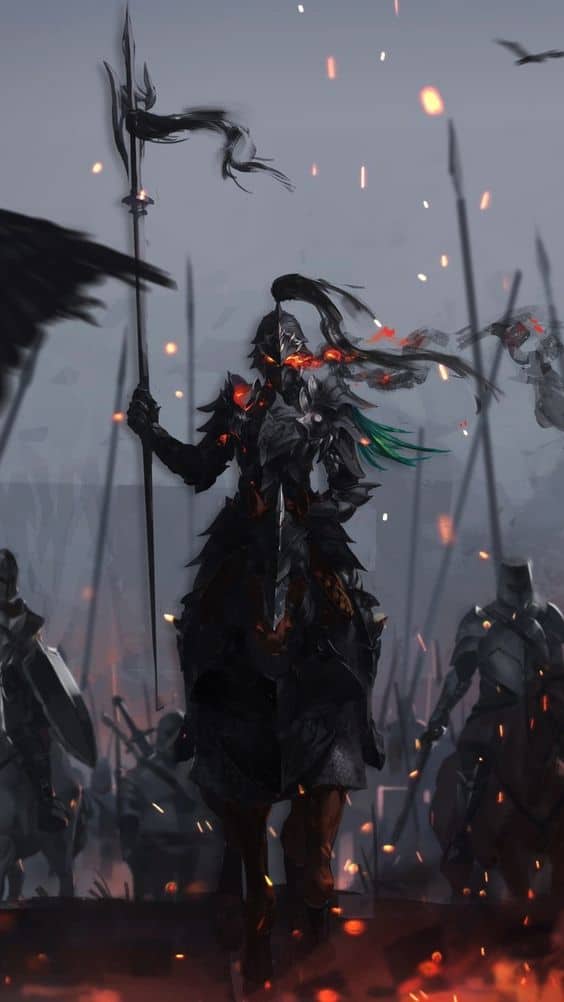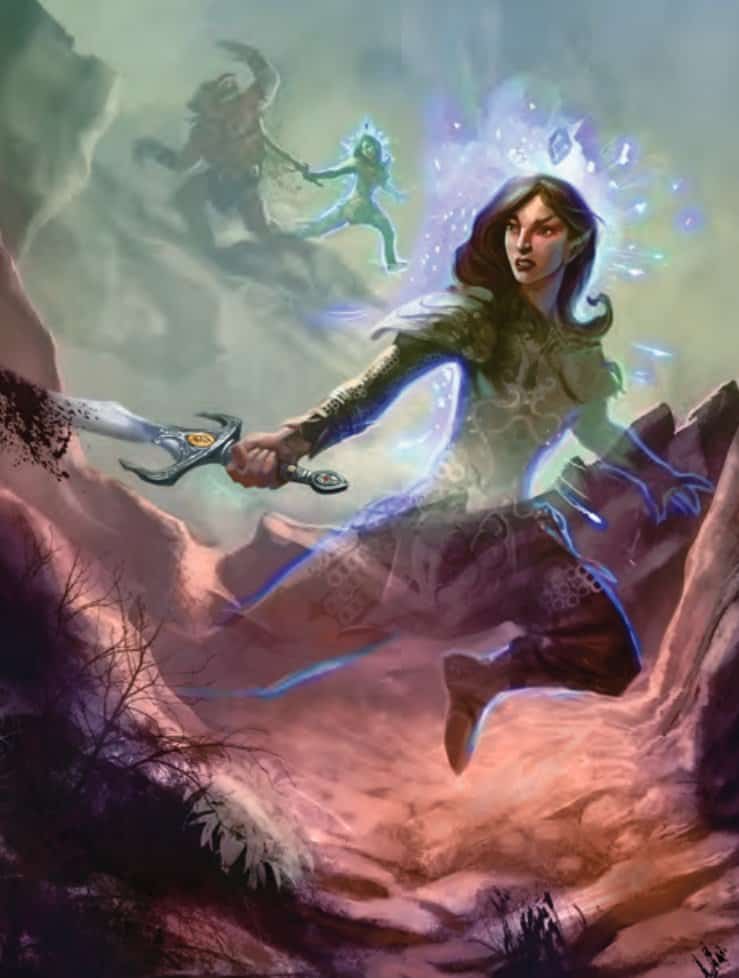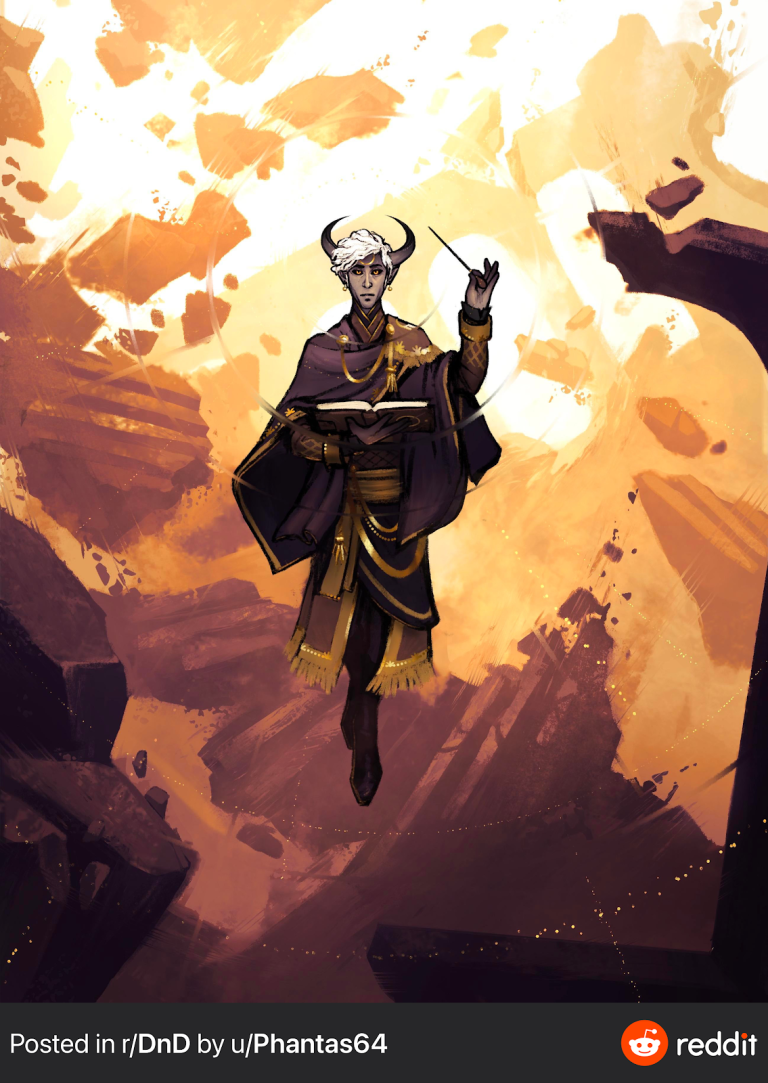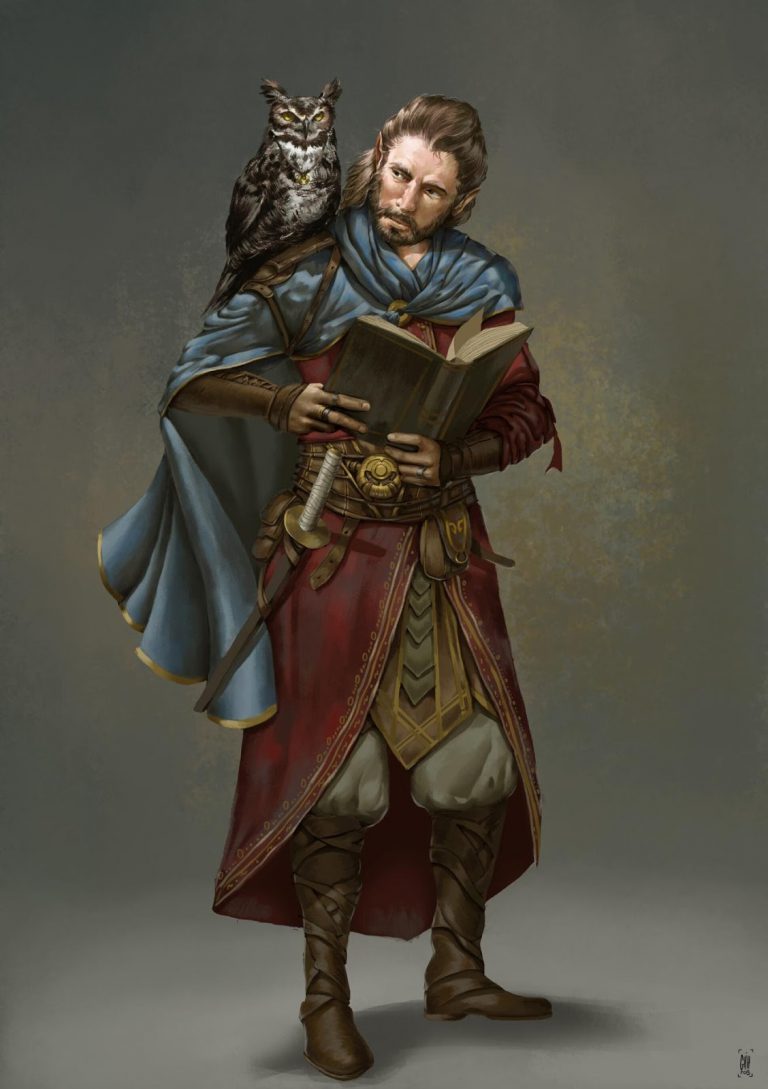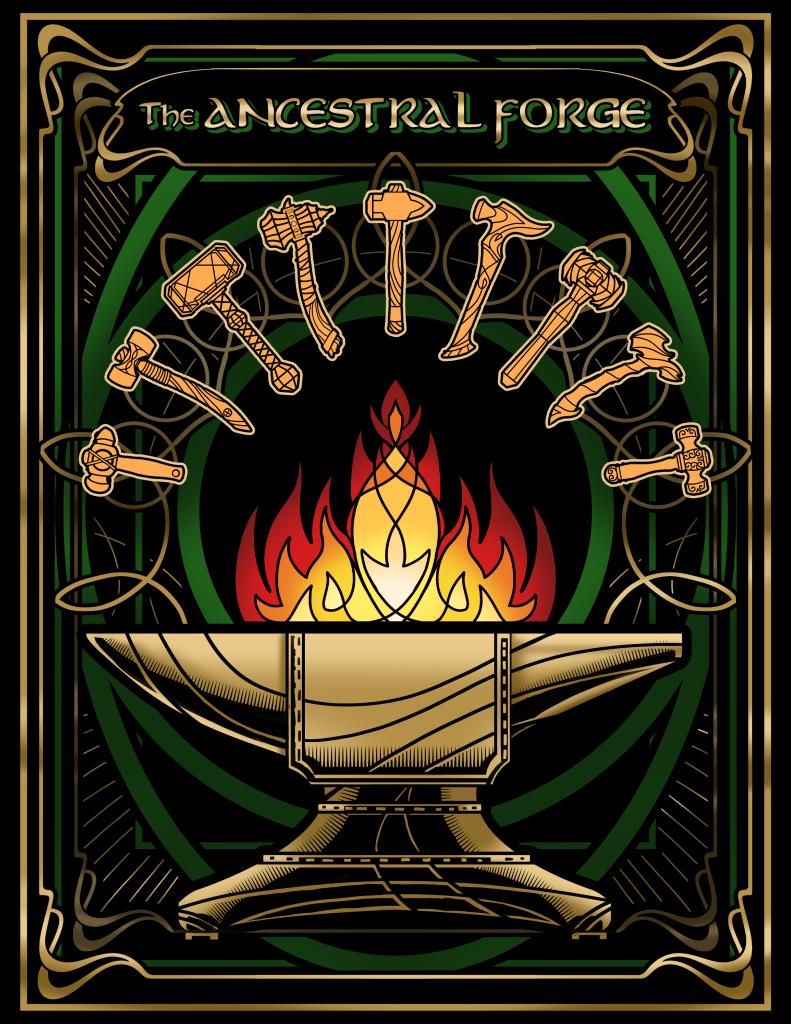D&D 5e: School of Divination Wizard Guide
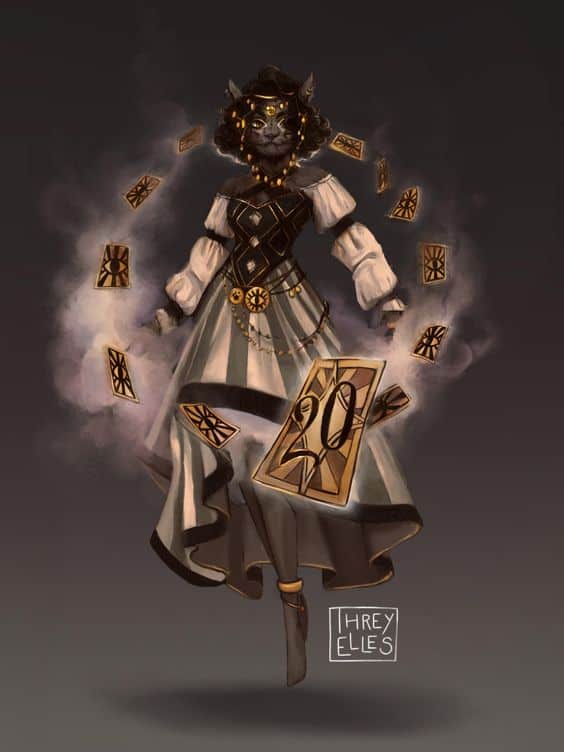
D&D 5e: School of Divination Wizard Guide
Role in the Party
One of the biggest killers in 5e is simply dumb luck. Probability is a harsh mistress, and a series of poor rolls or turning a corner into a random encounter with enemies that shut down key abilities among the party can easily mean having to roll up a new group of characters.
Wizards from the School of Divination do everything they can to stop this from happening. Trained and able to peer into the future, they discern key moments in time, then reach out and lock those moments in place, making sure that, when it’s necessary, the unseen trap misses by a hair’s breadth, and the spell that absolutely needs to succeed, does.
This guide breaks down why the School of Divination is a good subclass for the Wizard, how to build one, and some good choices regarding feats and skills.
Epic
Good
Meh
Bad
The School of Divination Wizard subclass is found in the Player’s Handbook. Click here to pick up your own copy of the Player’s Handbook!
School of Divination Features
Divination Savant: Copy spells into your spellbook in half the time, for half the gold cost. Most Wizard schools gain a version of this ability, and it’s a useful one, as more spells in the book mean more versatility for the Wizard.
The Divination school in particular contains a lot of ritual spells, so having them in the spellbook means they can be cast without burning a spell slot. You’re probably going to want to collect as many spells as possible, so this tends to save the Wizard a lot of gold in the long term.
Portent: This is the key ability for the School of Divination. The actual ability represents how they divine the future, and it’s absurdly powerful.
At the start of the day, the Divination Wizard rolls two d20, then records both numbers that come up. These are the Wizard’s Foretelling rolls.
Before the Wizard, or any creature that they can see, makes an attack roll, an ability check, or a saving throw, the Wizard can substitute one of their foretelling rolls for the number that would have been rolled instead.
This is a flat replacement for the roll. It overrides Advantage, the Lucky feat, and any other skills or abilities that interact with the dice because no dice are rolled. What you see is what you get.
That means, no matter what the Foretelling dice show, the result is always useful. High rolls are perfect for attacks or saving throws, for yourself or any other member of the party. Especially on the days when the Divination Wizard rolls a 20 and can guarantee a crit for the Rogue’s sneak attack.
Low rolls can be substituted for enemy attack rolls, forcing major attacks to miss, but can also be substituted for enemy saves, which means the Divination Wizard can force an enemy to fail a save against something that completely disables them, taking a boss out of the fight for a turn (or at least burning a use of Legendary Resistance, though it’s probably better to save this ability for when you know all uses of that are gone and the spell will take effect.)
Even mid-rolls can be substituted for skill rolls or attack rolls where the Wizard roughly knows the chances of success. An enemy attacking the party tank, with their incredibly high AC, will almost certainly fail to hit on a 10, and conversely, the Rogue will probably pass a skill check from one of their Expertise skills using the same value.
This ability defines the School of Divination. It combines a big dose of power with fluffy thematic elements, as the Wizard literally predicts the exact outcome of actions. Consistency matters in D&D, and being able to guarantee an action is probably the most powerful thing of all.
Expert Divination: From level 6, Divination spells cost the School of Divination less magical essence to cast than they otherwise might. Whenever the Wizard casts a Divination spell of level 2 or above, they can regain an expended spell slot that’s below the level of the spell being cast, up to a maximum of level 5.
The Wizard’s spell book contains around 20 divination spells of level 2 or above, including plenty that might want to be cast quickly. This means that casting Arcane Eye (level 3) to scout out the dungeon ahead could refresh a level 1 or 2 spell slot, or True Seeing (level 6) can bring back spell slots up to level 5.
Between this ability and Arcane Recovery, the Divination Wizard is far less spell starved than other casters might be, gaining multiple free spell slots every single day, and won’t feel anywhere near as bad about casting necessary utility spells, as they get something immediate back from it.
The Third Eye: At level 10, the Divination Wizard can spend an action to gain one of four magical means of seeing:
-
Darkvision to 60ft (a level 2 spell, also given by a lot of races)
-
Vision in the Ethereal Plane to 60ft (normally requires True Sight, a level 6 spell, and can be useful against ghosts, and spellcasters.)
-
Understanding all written language (useful utility, and might be much better in certain campaigns.)
-
See Invisible out to 10ft (replicates a 2nd level Divination spell, except worse.)
The ability lasts until the Wizard is incapacitated or takes a short or long rest. Conveniently, the ability also refreshes on a short or long rest, so if you need one, and you don’t have the spell available (but you probably should at this character level.)
While it’s useful, many of these are available from low levels and are not particularly powerful. But the ability is free to use, flexible, and lasts all day, so most characters can find some use for it.
Greater Portent: From level 14, increase the number of Foretelling dice rolled at the beginning of the day from 2 to 3.
This ability boost is simple, but a flat 50% increase in the Divination Wizard’s main ability is incredibly powerful. Especially since, unlike many capstones, this comes early enough that it might actually see some serious use over a character’s adventuring career.
Strengths
For an ability so simple, Portents, the main ability of the subclass, has an almost infinite number of uses.
Whether it’s making sure that the Paladin lands that last hit needed to Smite a foe back into the depths, the Rogue makes a near-impossible series of daredevil acrobatics, or a disabling spell worms its way into the Lich’s mind and leaves them staring into thin air for a turn, the moments when the Divination Wizard effectively sees the future is always guaranteed to feel good.
Backing this up, the character is still a Wizard, with all that entails:
One of the most comprehensive spell lists in the game, with very few of the limitations other classes have.
Incredibly powerful spellcasting that can be specialized into nearly any of the major combat roles: Damage, buffing, debuffing and control, and utility.
Amazingly powerful out-of-combat abilities, including enough scouting and knowledge gathering that a Wizard with enough time can effectively plan out entire encounter chains ahead of time. (And the Divination Wizard is the specialist at this.)
Weaknesses
Every Wizard is hampered by one major issue. A d6 hit die and no real way to boost their AC means they’re about as tough as a sleeping kitten.
The Wizard must work with their party to keep big bruiser enemies like ogres away because one bad turn can be all that it takes to leave a Divination Wizard lying in a bleeding heap on the ground.
While the School of Divination does offer some defense in the Portents ability, it’s normally not worth burning this valuable resource on just not getting hit once. Instead, look for ways to supplement the character’s defenses using feats, racial traits, or just working better with your party members.
It’s also common for lower level Wizards to start to run out of resources. Once they hit level 6, the School of Divination has another buffer against this, but it’s important to pace spell use so you don’t run out of slots.
Best Race Options
Fairy: A smattering of Druid spells that can be recast with your spell slots, a language, and your choice of stats. But what matters is flight, a permanent, always-on flight that’s only limited by armor, which, as a Wizard, you’re not likely to be wearing.
Gith: Both variants of Gith offer the all-important INT increase. Which one you take depends on the character you’re building. Githyanki gains a skill or tool proficiency and a language, plus proficiency in light and medium armor and sword-type weapons, as well as some movement spells.
Githzerai instead gains Advantage against charmed and frightened conditions and some defensive and mind-affecting spells. Both are useful, though the extra defenses of the Githyanki are probably better.
Forest Gnome: Perfect stats, free Minor Illusion cantrip, Darkvision, the ability to speak to animals, and Advantage on mental saves against spells add up to a powerful basis for a Divination Wizard.
Choosing the Right Skills
Wizards as a class are skill starved and tend to lack the stats that would be good for a skill monkey anyway. The expectation is that, should a situation come up, the Wizard is going to use their mastery of magic to solve the issue, rather than having to rely on more mundane means.
Still, the Wizard comes with at least 4 skill slots that need to be filled. Good options include:
-
Perception, one of the most commonly rolled skills in the game
-
Any knowledge skills, because of the high INT of the Wizard
Fitting Feats
Lucky: Gain 3 luck points every day which can be rolled in addition to the normal dice for attack rolls, ability checks, saves, and enemy attack rolls against you.
This is another probability manipulation mechanic, so fits right on the theme, and gives the Divination Wizard yet another method of guaranteeing that the future they want comes to pass.
Alert: The character can no longer be surprised, and gains a big buff to their Initiative rolls.
This is perfectly in character, and going first lets the Wizard land that all-important first round spell, dropping damage on clustered enemies or impairing one key enemy’s ability to fight back with a debuff, backed up by a Portents dice, if necessary.
Telekinetic: The Divination Wizard doesn’t have much to do with its bonus action except the occasional spell cast, so having the ability to push or pull enemies and allies 5ft (allies can automatically be moved if they wish) to get into or out of dangerous areas or avoid opportunity attacks is incredibly handy.
This also increases a mental stat, teaches the character Mage Hand, saves a cantrip, and makes it invisible, a unique ability that you can only otherwise get from the Arcane Trickster Rogue.
Optimal Backgrounds
Sage: Two knowledge skills that scale with INT, and two languages to broaden the party’s ability to understand the world. Very Wizard.
Urchin: Wizards normally have the DEX for Sleight of Hand and Stealth. A Disguise Kit isn’t the best, but Thieves Tools are. Plus, you’re playing a character who dragged themselves out of poverty with their ability to see the future. A great hook.
Sailor: Athletics isn’t that useful, but Perception definitely is. Navigation Tools and Water Vehicles play into the background, as what important trading ship or diplomatic vessel wouldn’t like to know with absolute certainty what the day would bring; storms and pirates, or smooth sailing?
Multiclassing Options
Peace Cleric: This multiclass only needs one level to work. The main ability of the Peace Cleric, Emboldening Bond, scales entirely with proficiency and provides a useful buff, if not outright overpowered, at all stages of the game. Armor proficiencies and access to the Cleric spell list are also nice benefits.
If your GM won’t allow the Peace Cleric at their table, take the Order Domain instead and load up on buffing spells, which allows members of the party to spend a reaction to attack whenever the Wizard casts a spell on them.
Armorer Artificer: The character loses a little spell progression, but gets much tougher, with a higher hit die and proficiencies in all types of armor. Free magic items, as well as access to some spells that aren’t on the Wizard list (like Cure Wounds for emergency healing), add some flexibility, but we’re mostly here to not die.
Arcane Trickster: Arcane Trickster/Any Wizard is a solid split multiclass that spreads levels between both classes reasonably evenly, instead of dipping. The abilities of both subclasses here work together to make a utility monster, able to support the party outside of combat with spells AND skills, and in combat using disabling spells and sneak attacks.
While the spells of this multiclass might be weaker than going full Wizard, the Portents ability means that, when it’s necessary, spells are going to land. Especially if the class goes far enough into Rogue to gain Magical Ambush, which gives Disadvantage to any creature that the Rogue is hidden from when it casts spells.
Would I recommend playing a School of Divination Wizard?
The School of Divination did that rare thing. Take a class that has a lot of flavors, and a mechanic that’s powerful and fun to use, without being overpowering.
Because Portents has very limited uses per day, and the Wizard can’t guarantee what they’re going to roll before the day begins, the ability feels incredibly fair, even though it’s so strong. But there’s no better feeling than when everything falls into place and a Divination Wizard can take control of an entire encounter by forcing the future they want to happen.



